I’m not back to my computer yet, which has been sitting in my bedroom in Wisconsin since May, but we’ll be reunited in less than two weeks. So as I prepare to transition back into a regular blogging routine, and to give you a taste of what the past six months with Rocky Mountain Youth Corps were like for me, here are a few posts written by myself and fellow corps members: Read more
Tag: conservation corps
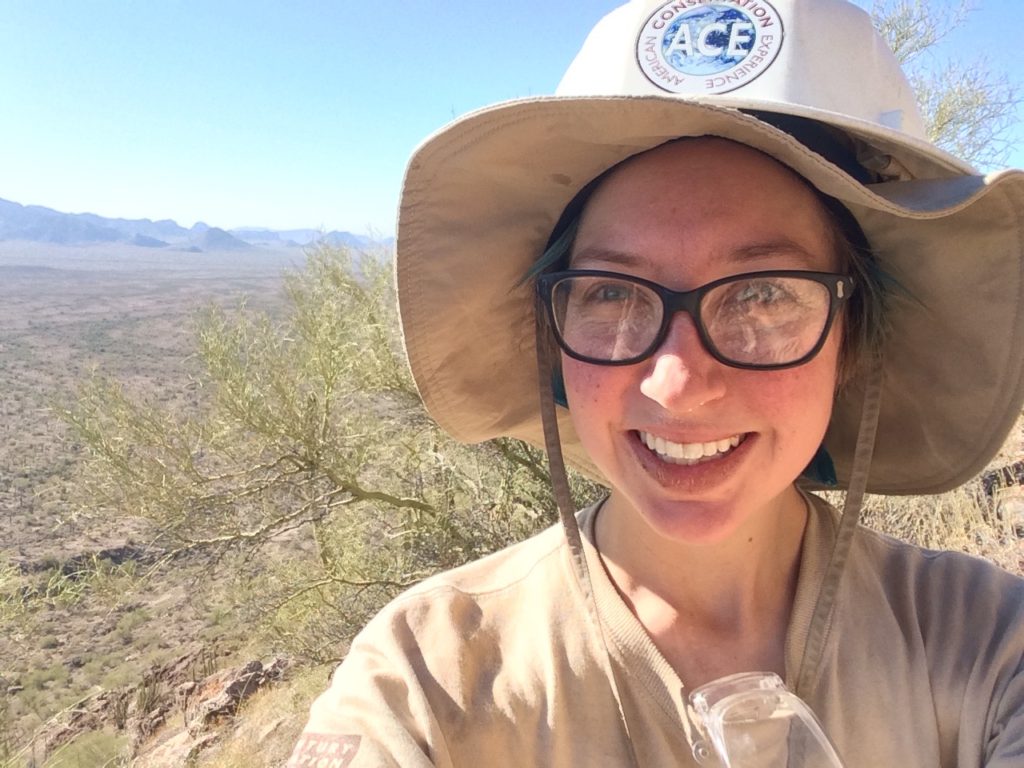
American Conservation Experience (ACE) Glossary
Well, if a non-ACEr were to join a group of ACErs for any given period of time, I’m sure a similar phenomenon would happen. I quickly picked up the ACE lingo not long after my 6-month AmeriCorps term began, but I thought it might be helpful to compile a glossary of such terms for future newbies. It was also a fun exercise to commemorate my time in ACE, now that I’m “ACE dead”—a term you’ll learn below.
Disclaimer: These are not official ACE terms. The views, thoughts, and opinions expressed in this post belong solely to me, and not necessarily to ACE or AmeriCorps.
ACE Glossary
ACE Basics

ACE – ACE stands for “American Conservation Experience.” Or, if you live in the apartments, it’s the joke name of their Snapchat group: “Apartments Clique Experience.”
Hitch – This is your conservation project which is usually an eight-day stretch of working and camping, as in “How was hitch?” It’s perhaps most frequently used with the preposition “on,” as in “I’m on hitch through Wednesday, so I’ll call you next week.” Here are the different schedules for hitches:
4/3 – You work four days, followed by three days off.
8/6 – You’re on hitch for eight days, followed by six days off.
Monthlong – Sometimes you might be sent to work at a location for four to six weeks, which is called a “monthlong.” In this case you’ll have housing of some sort for your off days (AirBnb, NPS bunk house, etc.).
Rig-up – The day before you leave for hitch your Crew Leader (and any crew members who want to come lend a hand!) will “rig up” at the office. This means preparing the van and trailer for hitch. So, you’ll load the coolers and food bins into the trailer, pack all of the tools you’ll need, etc.
De-rig – On your final day of hitch, upon arriving back at the office in Flagstaff your whole crew will help with “de-rig.” This involves washing the cook set, emptying coolers and food bins, cleaning the van/trailer, and cleaning/putting away tools.
The Schedule – This is a massive Google Spreadsheet which shows the year’s current/past corps members and what hitch they’re going on. There are multiple tabs to view the crew leaders’ schedule and other resources. Members check the schedule with anticipation every hitch cycle to see where they’ll end up next. It may change at any moment, and thus isn’t really finalized until the day before you leave for hitch—so be sure to check it a few times during your off days!
On Hitch
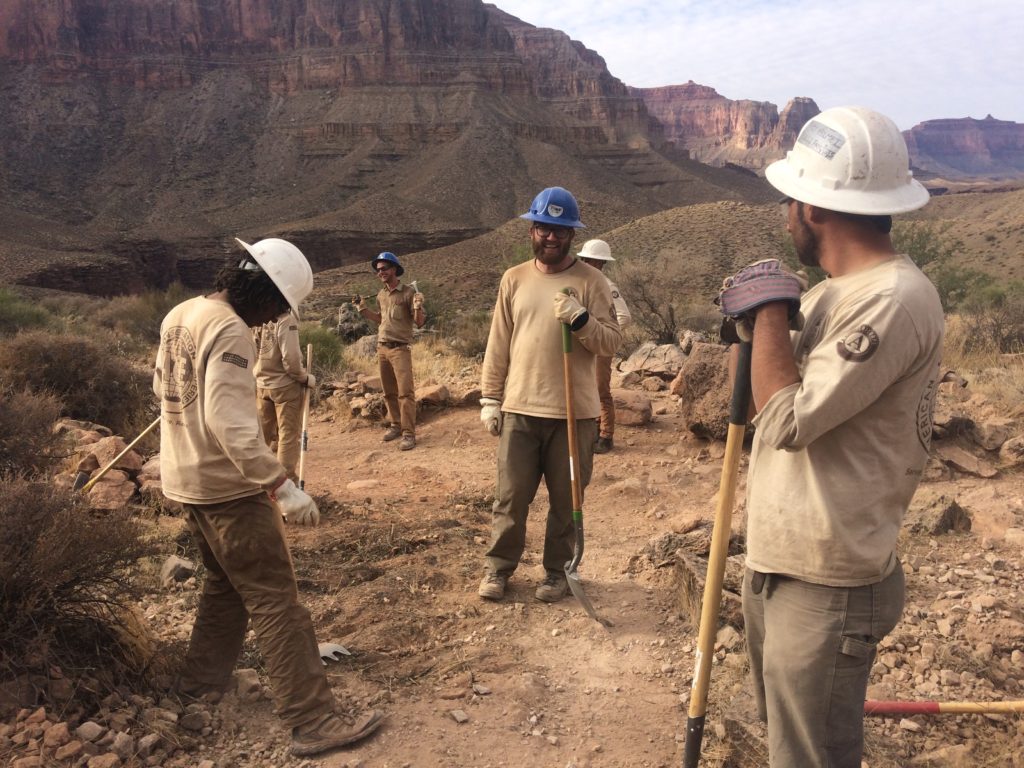
30/30 – This is a safety rule that means if you hear thunder within 30 seconds of seeing lightning, then you should go indoors and wait for 30 minutes.
Asshole Day – This is the last full day of hitch, the day before you drive home for de-rig. “Last whole day” kind of sounds like “asshole day,” hence the name. Nothing happens, people might simply comment that it’s Asshole Day.
Direction and Duration – This is a safety rule that means when you’re leaving the group for any reason (usually to go to the bathroom), tell at least one person your direction and duration. Examples: “Hey, I’m gonna go pee real quick this way” or “I’m gonna go take a shit over there, be back in 10.”
Hump Day – This is halfway through your project, and the day your crew gets to break into the Oreos and chips/salsa. This is an unwritten rule (as far as I know?) which everyone follows, so don’t touch the Oreos or salsa before Hump Day!
PPE – Personal Protective Equipment. In ACE, this usually consists of gloves, eye pro, hard hat, and long work pants. Depending on the type of work you’re doing, sometimes this could mean ear pro (ear protection – aka ear plugs) or long sleeves if you’re working with herbicide, for example. ACE provides your PPE—you simply have to bring it along on hitch and make sure you wear it while working.
The Four Essentials – These are (1) water (six to eight liters), (2) lunch/snacks, (3) PPE, and (4) rain gear. You need to have your four essentials with you every day of hitch.
“Hydrate or Dydrate” – This is a silly little phrase we say a lot on hitch, which we use to encourage one another to drink more water!
Safety Circle – This happens every morning of hitch. You go around a circle and each share a safety rule, and then everyone signs a sheet—your “contract” saying you’ve gone over these safety concerns and will keep them in mind.
Question of the Day – Most Crew Leads follow up Safety Circle with Question of the Day, which doubles as an opportunity to stretch. The Crew Lead or a crew member will pose a question, and then you’ll go around the circle to answer it. On your turn you’ll give the group a stretch to do as you share your answer.
Whoop – A whoop is a loud, high-pitched call of changing tones used to get someone’s attention—either when they’re using a loud tool (and have ear-pro in) or if they’re out of sight. You don’t want to overuse the whoop, though, because it’s a great call in case of emergency.
ACE Housing
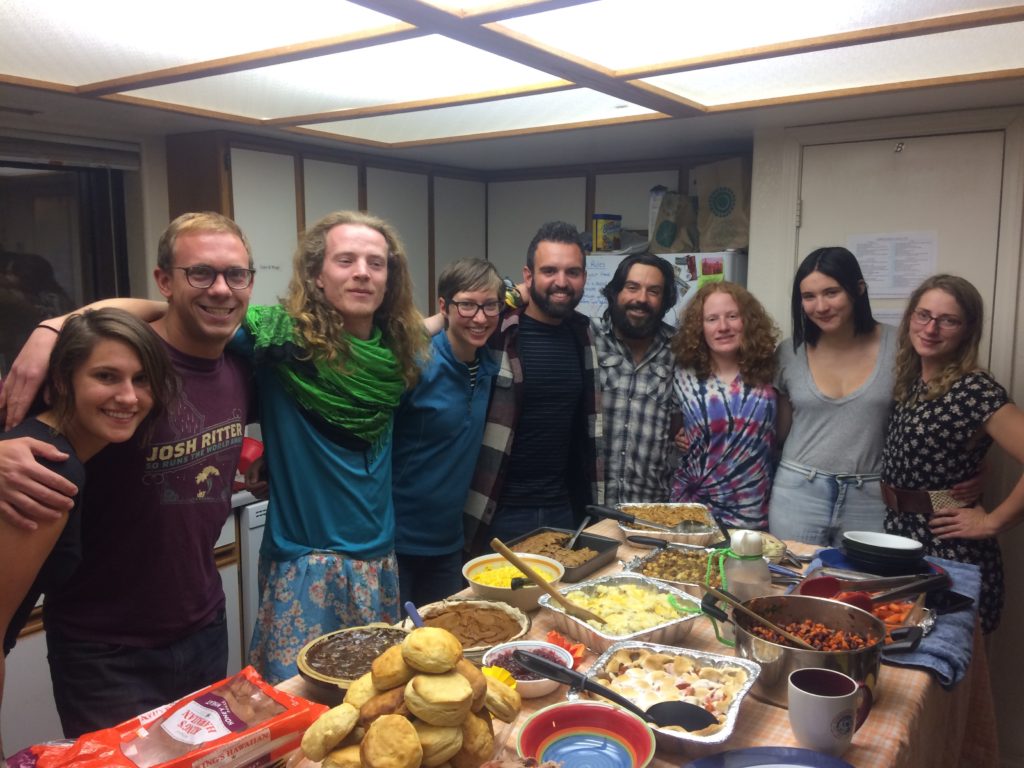
Apartments – These are the apartments on the south end of town. There are four bedrooms (each with its own bathroom), with four people to a room. (The best person-to-bathroom ratio in ACE!)
Cedar – These are the three houses on the north end of town, closest to the office.
Cisco – This is the house downtown, right across from The Mayor (a bar).
Commons – Any unlabeled food or items left in common living spaces will be put in “commons,” and thus up for grabs.
Commons Closet – The commons closet is where we keep non-food commons items, like clothing and guitars. You can take/use anything from the Commons Closet!
Food stamps – Most people serving in ACE apply for food assistance and receive EBT from the state of Arizona. But we just all it “food stamps.”
Hot bunking – If you’re gone for a monthlong, hot bunking is when a new corps member is assigned your bed while you’re away. As in, “Nooo, I’m getting hot bunked while I’m on my monthlong in Texas. So now I have to pack up all my stuff!”
Potluck – During my 6-month term, the Apartments began a weekly Sunday evening potluck. It was so regular, we just refer to the event as “potluck,” as in “Hey, what are you bringing to potluck this week?”
Strike – Earn three of these and you’re out of ACE! Each house has a list of ACE-wide rules, along with the number of strikes you’d receive for breaking each rule.
Super Scrub – At the end of each set of off days (every two weeks), every ACE house has a required “Super Scrub” in the morning. All members living in that house divvy up cleaning tasks.
Super Duper Scrub – Four times a year the houses have a much more intensive cleaning, called “Super Duper Scrub.”
Timesheets – These are completed every two weeks on an outdated AmeriCorps website called “America Learns.” If you correctly use the copy/paste function they don’t take long, it’s just a small hassle because of the site’s clunkiness.
VSP – Each AmeriCorps member must complete one (for a 3-month term) or two (for a 6-month term) VSPs before the end of their service. This is a conservation-related volunteer event in the area. In your biweekly ACE news email, Member Support Coordinators will let you know of any upcoming VSP events and how to sign up.
People in ACE
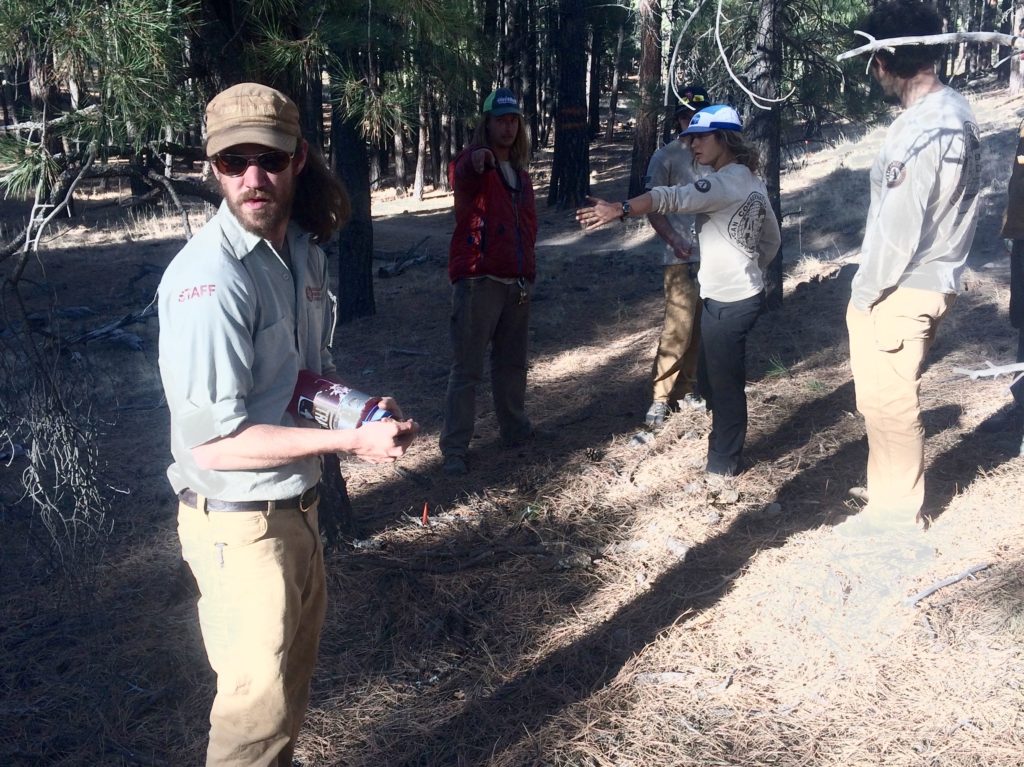
ACL – This stands for Assistant Crew Lead. There are a few hitches that require splitting up into two groups. In this case, they’ll have an ACL lead one half and the Crew Leader lead the other.
CL – This stands for Crew Leader, though we rarely used this abbreviation when speaking.
Housing Supervisor – This is a corps member who enforces rules in housing, welcomes new members, helps lead Super Scrubs, and generally serves as a role model in housing. Each ACE house has several Housing Supervisors.
Member Support Coordinator – This is the ACE staff member who hired you and who takes care of all housing concerns, PPE, and nearly any issue that could arise during your term. There were three Member Support Coordinators during my term: Clancy, Claire, and Kelsey. They have a long title which I never found myself using. Instead, I would ask members “Who’s your ‘person’?” when discussing issues where they should contact their Member Support Coordinator.
Project Partner – Different agencies hire ACE crews to work on various conservation projects. The agency is your Project Partner (i.e. NPS), as is the person from that agency who supervises your crew (i.e. Pam).
Just for Fun…
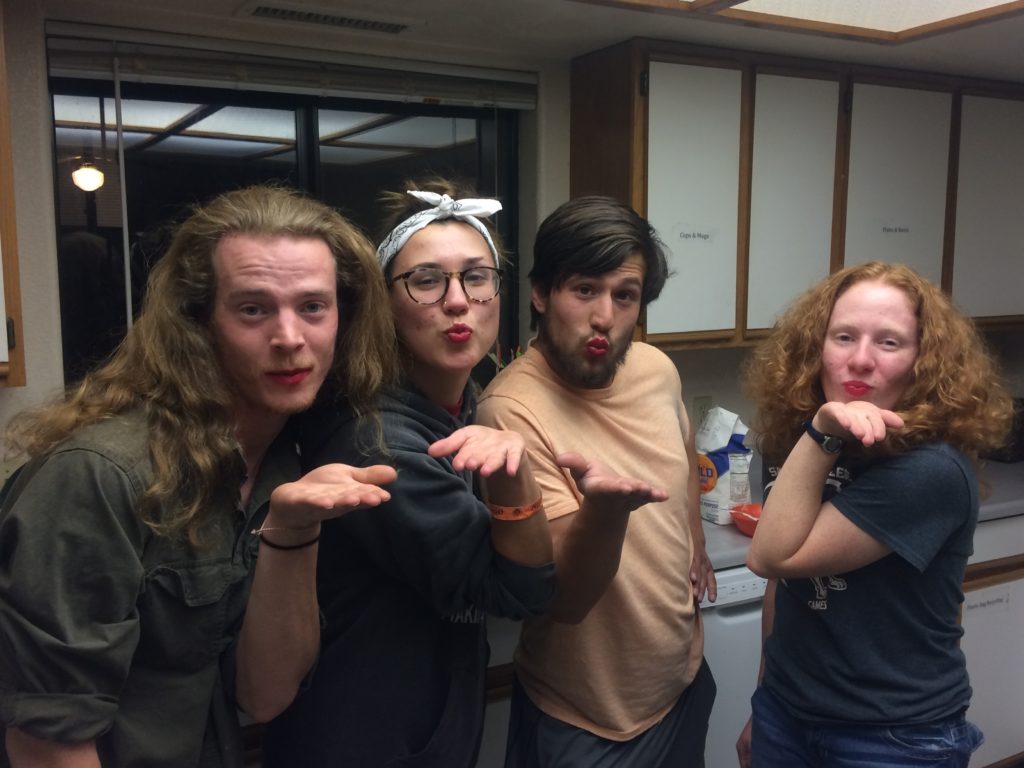
ACE dead – This is an informal term used by members as a status which means your ACE term has ended. Here’s an example conversation:
Jen: Do you want to go hiking with us on Sunday?
Orion: I can’t—I’ll be ACE dead! I leave Saturday at noon.
Dirt Muppets – This is the name that a bouncer at a Flagstaff bar once called a group of ACErs, which ACErs have since proudly clung on to as an endearing nickname. (Proud to work in the dirt!) How’d we get it? Apparently we looked dirty and danced like muppets!
First Fridays – The first Friday of every month in Flagstaff is the First Friday ArtWalk, a cool event downtown where art galleries and shops open from 6-9 p.m. for live music, art exhibits, refreshments, and more.
Odds – Another “game” I learned in ACE is called “Odds.” Basically, you can dare someone else to do anything by saying “Odds you… [insert dare here].” The person you singled out—let’s call them Andres—now gets to choose a number. Let’s say Andres chooses 20. Now you’ll both silently pick a number between one and twenty, and then count down aloud from three (“Three, two, one…”)and both say your number aloud at the same time. If you and Andres both say the same number, then Andres has to do the dare. If not, most of my friends play that now the dare is reversed back onto the person who began the Odds (in this case, me)—but they have to play with the number the first person picked (in this case, 20).
Snot rocket – Okay, so this isn’t an ACE-specific term, but I’d never heard of it before I joined. To save on tissues when you have a cold on hitch, I learned it’s handy to just snot rocket your snot out! Close one nostril with your finger and then blow hard through your nose. Snot from the open nostril will shoot out down to the ground! I laugh every time I do it—such a fun and funny sensation. And it really does save you on TP!
Sure does! – Many friends and I got in the habit of replacing any affirmative question with “Sure does!,” even if it doesn’t make sense, thanks to the joke about two penguins rowing through a desert. Example:
Dra: Should I make vegan chocolate chip cookies for potluck again?
Rebecca: Sure does!
What’s an ACEr’s favorite flower? – This is a joke you’ll hear in other branches of work as well, but I heard it often in ACE. The answer: Tulip! (Tool up)
Trails Terminology
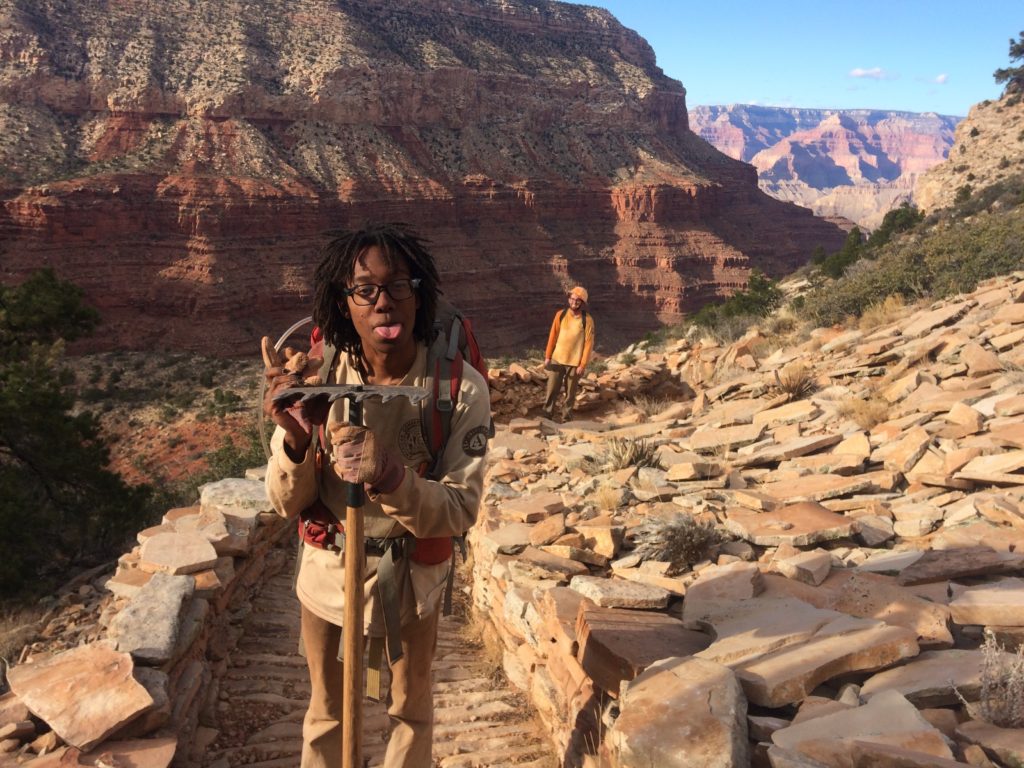
There’s a ton of terminology with trail work, and some of it varies based on the organization/Project Partner or Crew Lead that you work with. Instead of going through all the terms, here are some great resources you can check out:
Recommended Standard Trails Terminology for Use in Colorado – This is what I should study up before my next conservation gig (Rocky Mountain Youth Corps), but it’s not a bad place to start.
Trail Construction and Maintenance Notebook – This is a full PDF of the booklet I received at my trails training at ACE, put together by the USDA and the Forest Service. I like it because there are lots of images, plus the writing at parts is more entertaining than you’d expect.
Trail Terminology at PCTA Trail Skills College – Here’s a PDF of the trail terminology used by the Pacific Crest Trail Association.
Tools for Trails – This site has a nice glossary (with images!) of the many tools you might use on the trails. The navigation isn’t that intuitive, though, so to see the other pages you just have to click the links for the section you want to view (located near the top, between the red “Tools for Trails” heading and the dark blue “Tools for Trail Work” subheading).
If anyone has recently joined ACE in Arizona, I hope this is helpful! And to anyone who has been or is a current member of ACE, are there any other terms I should add? Let me know in the comments!